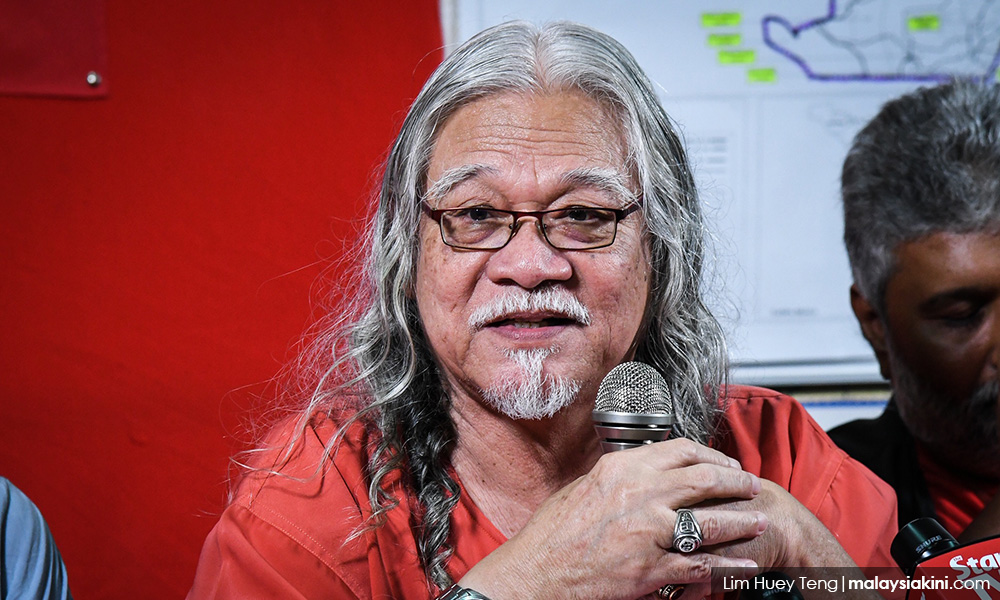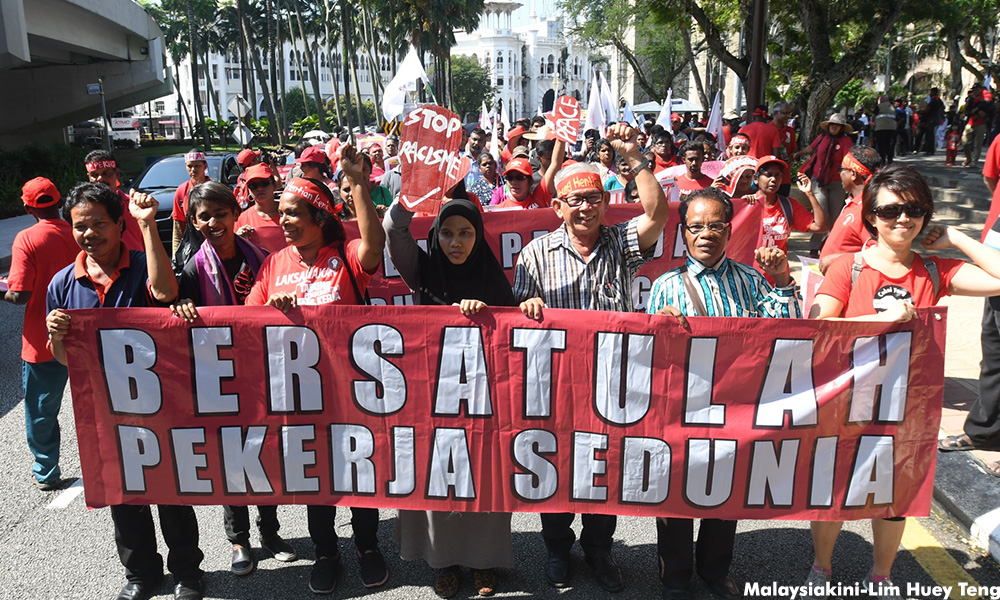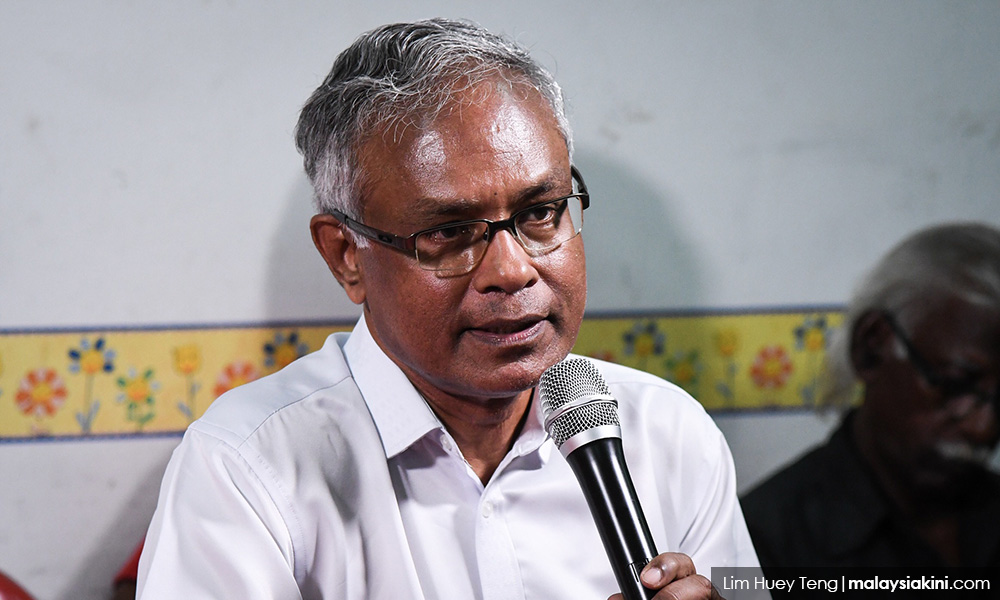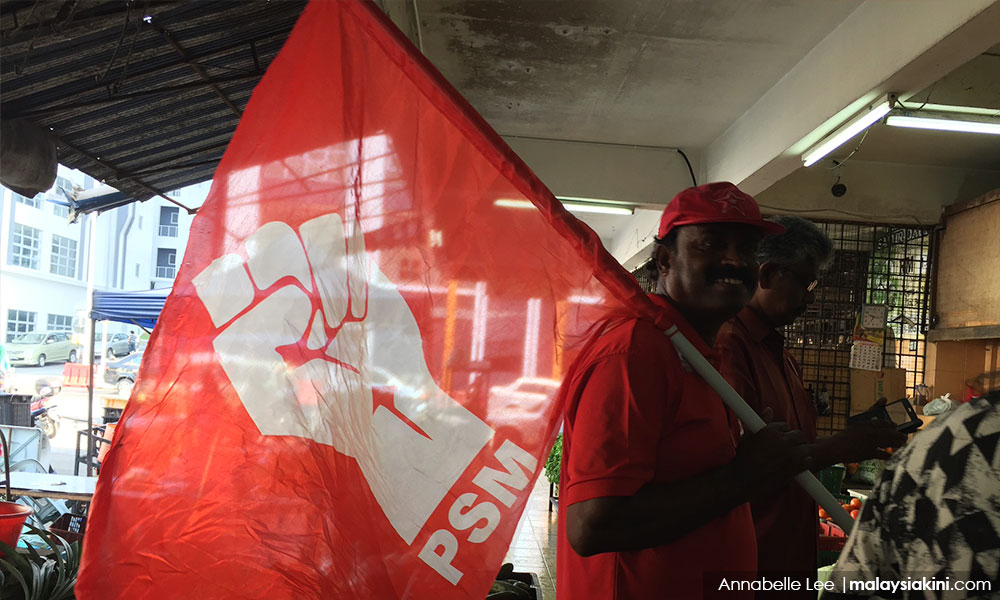Twenty-five years ago, on April 30, 1998, a day before Labour Day, a few of us, including Mohd Nasir Hashim, V Selvam, and myself, went to the Selangor Registrar of Societies (ROS) in Jalan Pekeliling, Sentul, to register a party called the Socialist Party of Malaysia (PSM).
There was no widespread media coverage, except for a small news article in The Star the following day, which reported the event and questioned whether this new party would survive or continue to die like previous left-wing parties such as Social Democratic Party, Marhaen Party, and Pekemas Party.
Registering a left-wing party with the name “Socialist”, after the fall of the Berlin Wall, after the right-wing political scientist Francis Fukuyama wrote his book “The End of History”, after the Malayan Communist Party signed the Hat Yai Peace Agreement, and after the People's Socialist Party of Malaysia dropped the word “Socialist” from its name, was seen by most people, especially the old socialist groups in our country, as a crazy move, an attempt to dig one's own grave, irrational and adventures.
However, the party that applied for registration during Dr Mahathir Mohamad's tenure as the fourth prime minister, before Anwar Ibrahim was ousted from Umno and before the Reformasi, was only registered 10 years later.
Although PSM is small and often referred to as a mosquito party, as we all know, mosquitoes are a type of insect that is feared, especially in this context, by capitalists, religious extremists, and their allies.
PSM has indeed been a thorn in the flesh for those in power who believe that the history of left-wing parties in Malaysia has ended.
For 10 years, the government tried to prevent PSM's registration. However, PSM became the first party in history to drag the Home Ministry to court, and after a great struggle, PSM was registered. Also, the word “Socialist” has returned to the country's political vocabulary.
During that period, Dr Michael Jeyakumar succeeded in becoming an MP, and Nasir became a state legislator in Selangor. This marked the return of socialist MPs and state legislators after a 40-year political drought. The last time a socialist party won an election was in 1964.

Although PSM borrowed the PKR logo, after PSM was registered, it was recorded in Parliament and Selangor legislative assembly that Jeyakumar and Nasir represented PSM.
After PSM was registered in 2008, the Election Commission (EC) brought up the issue and said that the PSM clenched fist symbol was inappropriate and had violent connotations.
PSM fought back and argued that the keris in the Umno logo and the rocket in the DAP logo could also be interpreted as symbols of violence, while the PSM fist symbol was merely a part of the human body. Eventually, PSM won the battle, and the PSM clenched fist logo was allowed by the EC.
Major challenge
Three years after PSM was registered in 2008, another major challenge emerged when half of the party's top leadership was detained under the Emergency Ordinance (EO). In 2011, dozens of PSM members and leaders were detained due to a national campaign at the time, "Enough is Enough, Retire BN".
The BN-Umno government detained six PSM activists under the EO after more than a week of fighting with dozens of other PSM activist detainees on charges of reviving the Malayan Communist Party, opposing the Yang di-Pertuan Agong, and so on.
This clearly shows that the government's action was actually trying to scapegoat PSM as bait to destroy the Bersih movement at that time. However, PSM continued to fight against the tide and conducted a nationwide campaign until all PSM detainees were released. PSM once again survived the government's attack.
In 2016, the inspector-general of police also cancelled the PSM Ideology Bureau's Marxist Crash Course due to national security issues. Once again, PSM became the headline news and this is a testament to how the government is so worried about socialist ideology.
During the 2019 Semenyih by-election for the state assembly seat, then-prime minister Mahathir said that some leaders of the Pakatan Harapan government should change their "socialist" way of thinking and should not continue to condemn the capitalist system.

He reprimanded a few Harapan people by saying that they should not criticise the capitalist system because it is the system that has enriched the country.
This year during the national budget debate, Wan Saiful Wan Jan of Perikatan Nasional asked whether the government budget was inspired by the Communist Manifesto written by Karl Marx and Friedrich Engels about 175 years ago. Wan Saiful also questioned whether the prime minister was trying to incite class warfare.
A feared system
All of this sends us a message that the socialist system is indeed a system that the government fears and this is why it took more than 10 years to register PSM and then continue to harass PSM.
Unlike several left-wing parties that existed since the 1980s and 1990s, PSM is based on Marxist ideology. PSM has a programme based on class struggle. Its members follow the ideological class and the party's struggle always emphasises this position, including on international issues.
PSM also brings Malaysian-style socialism by taking into account the issues in our country while not deviating from the class struggle.
PSM is also consistent and continues to campaign on issues that can empower workers and the ordinary people in our country.
Among the campaigns that have a clear ideology is PSM's opposition to neoliberal capitalist policies where we oppose the privatisation of hospitals, privatisation of water, and Goods and Services Tax.
We fight for comfortable housing for the poor and demand more comprehensive protection for workers. Most recently, we proposed a campaign advocating for senior citizen pensions.
PSM has support from the urban poor, plantation workers, and a segment of the labour force. PSM has also built various front parties that focus on grassroots issues.
However, PSM's grassroots strength has not translated into electoral strength. PSM is still struggling with increasing membership and achieving political success in elections.

On international issues, PSM opposes all wars supported by global imperialists, opposes Free Trade Agreements, and is now objecting to the Comprehensive and Progressive Agreement for Trans-Pacific Partnership.
Both BN and Harapan are wary of PSM because of one reason - PSM's socialist ideology that rejects the capitalist system. Both major parties are supported by large capitalists and will not allow a socialist party to grow or gain influence.
This can also be seen during the 15th general election when Harapan rejected cooperation with PSM, but today, they can join hands with BN. PN sees PSM's secular, progressive, and liberal agenda as a threat to its struggle.
In this hostile and challenging atmosphere, PSM continues with dignity and a strong identity. Although PSM failed to win elections, PSM's perseverance has succeeded in winning victory after victory in grassroots areas and on the national stage.
At the party's inception, PSM took a position to bring the name "Socialist" back to the mainstream political arena of the country, and this has been achieved.
The word "socialist" has become an acceptable term. PSM remains a leading party that continues to articulate a class struggle, and it stands against other political parties that survive through racial and religious politics.
Progressive voice
Today, PSM's views are often widely covered in the media, and civil society sees PSM as a progressive and grassroots-minded voice. PSM's campaign has successfully obtained the Minimum Wage Act, housing for plantation workers, and the Employment Insurance Scheme – these are unheralded giant victories.
All of these victories are the result of PSM's determined efforts. This does not include hundreds of grassroots struggles that take place in every corner of this beloved land.
PSM is now 25 years old, which has exceeded the lifespan of the Socialist Front, which was destroyed after 10 years. We now have many young Malay members who have joined PSM, where once we were afraid that Nasir would be the last Malay socialist. PSM has established itself in Malaysia as a party of struggle, a party of ordinary people, and a party of the grassroots.

In these 25 years, PSM has grown significantly. At the same time, we continue to be criticised for failing to become a mainstream party for 99 percent of Malaysians. PSM still fails to achieve critical electoral victories, and most of this is due to the electoral system and racial politics.
However, PSM has successfully brought the name "Socialist" back to Malaysia. Now, the ultimate struggle is to build a mass movement to reclaim our world from the richest one percent and redistribute wealth to the 99 percent of the majority. PSM only plays a role as a link in the previous leftist struggle, and we are ready to work with like-minded movements to build a better world for all.
The Marxist Dialectical Theory states that as long as there is oppression, there will be a struggle for justice. As long as inequality exists, there will be a power demanding equality. As long as there is a gap between the rich and the poor, there will be a class war to demand a fair and equitable system.
Therefore, whether the ideology of socialism or PSM will remain relevant or be consumed by time depends solely on objective circumstances. As long as there is class conflict, there will be a class struggle. For PSM, as long as there is a class struggle, PSM and the leftist movement will remain relevant.
Happy 25th anniversary to Parti Sosialis Malaysia! - Mkini
S ARUTCHELVAN is PSM deputy chairperson.
The views expressed here are those of the author/contributor and do not necessarily represent the views of MMKtT



No comments:
Post a Comment
Note: Only a member of this blog may post a comment.